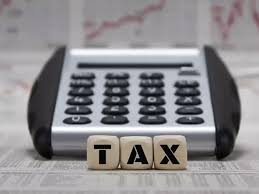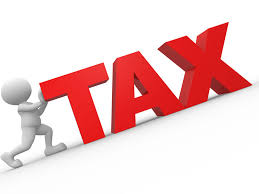Introduction to taxation: Ignorance about tax issues can kill your business (part 3)
 Introduction to taxation: Ignorance about tax issues can kill your business (part 3)
Introduction to taxation: Ignorance about tax issues can kill your business (part 3)
It is very essential that you comply with tax sector obligations in your state because your business can be affected greatly by it. As a business owner, you don’t have to be ignorant about issues concerning tax payment. Your employees do not necessarily have to worry about it, because it is directly removed from their monthly salary, and the rest is paid to them.
But as a business owner, it is quite different, you have to take full responsibility for paying the stipulated amount of tax on your business profits in accordance with the National Insurance policy contributions. Many employers think it is only big companies that have to pay tax, but it is not so.
Business tax is levied based on the profit the business makes. As soon as a business starts making profit, no matter how small, they have to start paying business tax at the appropriate rate. Business taxation affects a business’s costs. For instance, an increase in business tax is the same as an increase in costs, which leads to an increase in prices of what the business offers. Business taxes can include VAT (Value Added Tax), or landfill tax.
The level of an interest rate for business is determined by the Monetary Policy Committee assigned by the government. Their decision to increase or reduce tax affects the price of a business. An increase in interest rates results in an increase in businesses borrowing money, which could lead to a fall in business sales.
Government spending policy also affects business. For instance, if a government spends more resources on the health sector, then there will be an increase in the income of businesses that supply hospital equipment, which will in turn lead to an increase in tax payments. The government set rules on tax policy to achieve a number of goals, ranging from raising revenue to directing business decisions.
Taxes in a business are another form of cost involved in generating revenue. Sometimes, government policies add additional tax levy to discontinue a particular activity, thereby making it less desirable to businesses.
Capital Allocation
Most businesses exist to generate profits on the capital invested in the business. When a business isn’t fulfilling this purpose, managers have to examine the individual returns generated by each sector of the business. This requires calculating the money left after tax has been removed, which depends on the tax burden of each sector. When there’s an increase in tax rates, it reduces the profits generated by any aspect of a business that is liable to paying tax.
Geographical decisions
An increase in tax rates affects where small businesses can open up in terms of location. A first-time small business owner will tend to look for locations with low rents to set up his business. But the tax rates of any location should be considered too when setting up a business. A low rent payment does not imply low tax rates. For small businesses, you cannot escape local taxes, so it has to be put into consideration when making the decision of where to set up your business.
 Introduction to taxation: Ignorance about tax issues can kill your business (part 3)
Introduction to taxation: Ignorance about tax issues can kill your business (part 3)
Suspend operations
Taxes are levied as a percentage of any business’s total income, and this boils down to one to Adam Smith’s principle that says that the government should charge tax in accordance with when the taxpayer has the ability to pay. However, some taxes have to be levied based on a company’s asset without concern to whether there’s an ability to pay or not. An increase in value-based taxes can make a profitable business unsustainable. For instance, an increase in property tax rates can make a farm that is barely making a profit to having tons of profits in a short time.
Taxes have different effects on different kinds of businesses. As an entrepreneur, taxes can be of disadvantage to your business because they reduce your total gross profit. Factors that can affect the taxation of your business include the type of business you own, the number of employees you have, the amount of profit you generate, and the location of your business. Before you start a business, you should be aware of how taxation affects businesses, so you can be guided on the decision of which business type to go for.
Sole proprietorship
This is the least expensive of all business types to start as an entrepreneur. The taxes your business will be levied is clear, as there are no differences between you as a person and the business. This means you will be charged based on an individual (personal) tax. Since you are your business in a sole proprietorship, you do not have special tax burdens, as other business types.
Read Also: How to Generate Business Ideas that Work
Partnerships
This is a type of business created by agreement between two or more people. All members included in the partnership take up responsibility for any debts incurred by the business. In a partnership business, the taxation rule states that each partner is charged based on their ownership share in the business. This means that every individual involved in the business pays taxes on his share of profit literally earned from the partnership. They pay taxes as normal personal income tax.
 Introduction to taxation: Ignorance about tax issues can kill your business (part 3)
Introduction to taxation: Ignorance about tax issues can kill your business (part 3)
Limited Liability Company (LLC)
Taxes are paid based on the income earned by the LLC. The government does not identify an LLC as a business entity, so tax is levied based on personal income. An LLC is quite different from a corporation, in that the former cannot issue stocks like the latter. LLC’s are considered by the Internal Revenue Service (IRS) as a “pass-through entity”. IRS regards an LLC the same way as a sole proprietorship or a partnership business. Thus, the LLC itself as a whole does not pay taxes, but as the owner of the LLC, you are charged on a personal level.
Corporation
The IRS regards a corporation as an entity and the owners of the business as a separate legal entity. The owners of the corporation are charged on their earnings from the corporations as salaries. The corporation itself as an entity also pays taxes at the corporate tax rates on profits. This means there is a sort of double taxation because the corporations pay taxes on profits, and the owners pay personal taxes on salaries and dividends.
Hope you enjoy this article?
Share your thoughts in the comment session.
Contact us today for your business consultancy and business advisory services. We can help you fine tune your idea, structure your business, market your business, train your staff, consult on your retirement plan, coach you for financial success. We also write business plan and help with fund raising strategies and Grant applications. We can help you start, grow and expand your business.
Call or WhatsApp us now on 081 0563 6015, 080 7635 9735, 08113205312 or send email to dayohub@gmail.com and we will solve any of your business problem.
Related